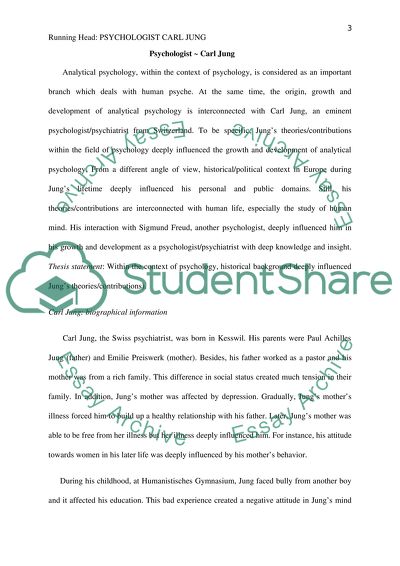Cite this document
(“Psychologist Carl Jung Book Report/Review Example | Topics and Well Written Essays - 2000 words”, n.d.)
Retrieved de https://studentshare.org/psychology/1392409-psychologist-carl-jung
Retrieved de https://studentshare.org/psychology/1392409-psychologist-carl-jung
(Psychologist Carl Jung Book Report/Review Example | Topics and Well Written Essays - 2000 Words)
https://studentshare.org/psychology/1392409-psychologist-carl-jung.
https://studentshare.org/psychology/1392409-psychologist-carl-jung.
“Psychologist Carl Jung Book Report/Review Example | Topics and Well Written Essays - 2000 Words”, n.d. https://studentshare.org/psychology/1392409-psychologist-carl-jung.


